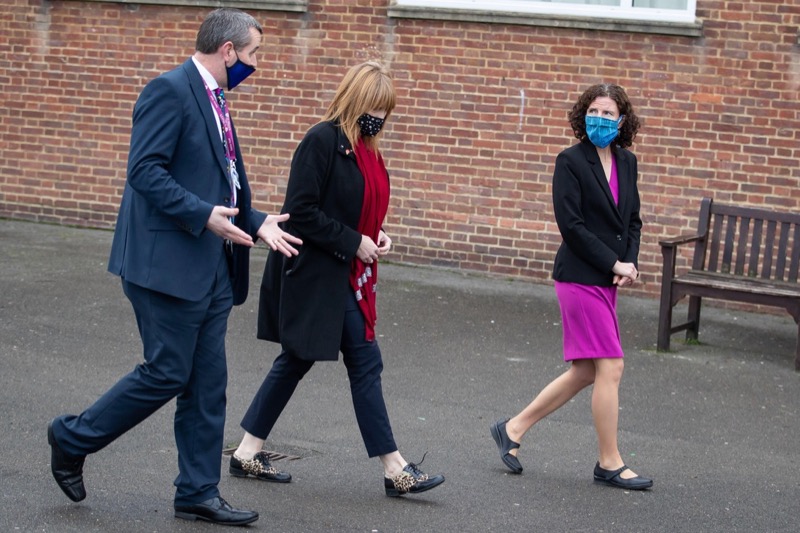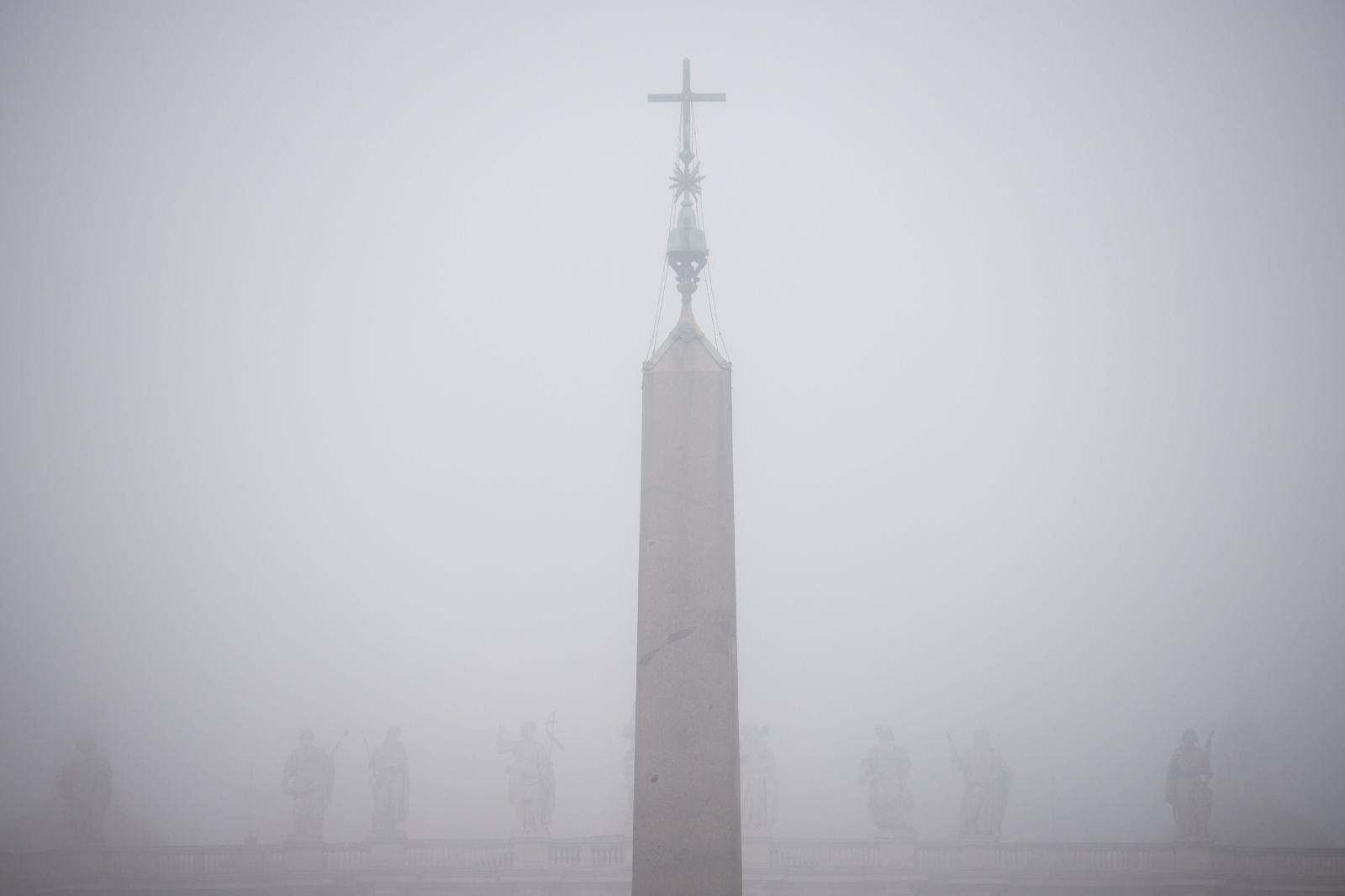It would seem that, in the new Leonardo Di Caprio and Jennifer Lawrence film Don’t Look Up Netflix has a hit on its hands, it having had the busiest week in the streaming service’s history. Arguably a hit is the last thing you want when a planet-killing asteroid is hurtling towards earth from the Oorts Cloud. But that’s the sledgehammer-like metaphor director Adam MacKay comes up with to force audiences to engage with climate-change. Campaigning astronomers take on frivolous media and self-obsessed US president and things don’t end well. Who would have thought?
Nearly six decades ago, another movie made black comedy out of a different doomsday scenario, the threat of nuclear annihilation: Stanley Kubrick’s Dr. Strangelove or How I Learned to Stop Worrying and Love the Bomb. It’s the subtitle which should interest us. Having reached adulthood at the end of the 1970’s, nuclear war seemed a very real prospect. Cruise-missile bases at Greenham Common and Molesworth, the Atomic Weapons Research Establishment at Aldermaston and the nuclear bomb factory at Burfield all featured in the news as well as in the calendars of CND supporters such as myself. And yet somehow, in the years since the fall of the Berlin Wall, it seems that our society really has learned to stop worrying and love the bomb.
Ernest Bevin reportedly said of the H-Bomb that we “need to have the bloody union jack on it”. Now the possession of Vanguard submarines, to be replaced by Dreadnoughts from 2028 at a lifetime cost of £205bn, assuming that, for once, the MoD can produce on time and on budget, has become a virility symbol for Global Britain, even though many military personnel would say that this spend is completely distorting our defence budget and even though warfare has become so often “asymmetrical”.
Will cutting off gas-supplies, severing undersea communications cables or attacks on “the internet of things” be grounds for a nuclear first-strike? Would the invasion of the Ukraine by Russia or the occupation of Taiwan by China lead to a nuclear retaliation by the US and its allies? What of disputes between the lesser nuclear powers – India versus Pakistan, say, or North Korea against forces the other side of the 38th parallel?
The risks of a nuclear exchange somewhere in the world seem to be multiplying rather than diminishing. There is talk of re-engineering the Trident warheads, the only bit on the missile which is of UK manufacture, for “sub-strategic” use against “rogue states”. And in March, 2021, our government announced a 40 per cent increase in our holding of warheads. This is in flagrant breach of the Nuclear Non-Proliferation Treaty’s requirement that nuclear weapon states enter into serious negotiations for the abolition of nuclear weapons, themselves illegal under international law following the adoption of the UN’s Treaty On The Prohibition Of Nuclear Weapons, which came into force in January, 2021.
It is remarkable how inaudible the UK Catholic community’s response to all of these developments has been. It would seem that most of us really have learned to stop worrying and love the bomb – not to mention the arms sales to the Saudi-led coalition bombing Yemen since 2015 (acknowledged value £6.9bn; Campaign Against the Arms Trade estimate £20.6bn) and our country’s overall position as the world’s second favourite arms’ dealer.
Clearly, we have not been listening to Pope Francis’ consistent teaching, notably in his 2020 encyclical, Fratelli Tutti: “It is very difficult nowadays to invoke the rational criteria elaborated in earlier centuries to speak of the possibility of a “just war”. Never again war!” (FT n.258) For “War is a failure of politics and of humanity, a shameful capitulation, a stinging defeat before the forces of evil.” (FT n.261)
Denunciations, however, are not enough – and fear and guilt are themselves poor motivators of change. So in his message for World Peace Day 2022 Pope Francis offers three concrete tools for building lasting peace: “Dialogue Between Generations, Education and Work”.
The first of these is perhaps the most obvious one. Here, as also in Fratelli Tutti, the Pope sees Covid-19 as having unveiled what is happening across whole societies – on the one hand, a retreat into private worlds, self-absorption and selfish indifference; on the other, violent protest. He sees the loneliness of the elderly mirrored in the helplessness of many young people. The only way of bridging our divisions and yielding fresh hope is, in his view, dialogue, an honest sharing of hopes and fears, dreams and disappointments, “breaking up the hard and barren soil of conflict and indifference in order to sow the seeds of a lasting and shared peace”.
The Pope’s quiet admiration for often angry and impatient environmental activists is matched by his conviction that young people need the wisdom and experience of the elderly. Once we get such intergenerational conversations going, then we can hope for a renewal of our politics, “no longer content to manage the present with piecemeal solutions or quick fixes” but seeking sustainable futures together. The synodal path, which Pope Francis invites the Church to walk together in coming years is thus a modelling of what is required at a global level in the secular sphere. Together we must discern the action of the spirit, “the voice that speaks of peace”; the places where “justice and peace have embraced” (Ps 85.8, 10).
And that dialogue must be given institutional form. This has to be seen in the labour market, with attention to those whose dignity and rights have been trampled on, especially during the Covid crisis – among the two thirds of the global population who do not have access to a system of social security; among those living marginally in the “informal economy”, often in situations of violence and degradation.
But a dialogical approach to building the future must be incorporated above all in the education system. As the Pope says: “teaching and education are the foundations of a cohesive civil society capable of generating hope, prosperity and progress. Military expenditures, on the other hand, have increased beyond the levels at the end of the Cold War and they seem certain to grow exorbitantly. It is high time, then, that governments develop economic policies aimed at inverting the proportion of public funds spent on education and on weaponry.”
This isn’t rocket-science. It certainly isn’t nuclear rocket science. It is actually old wisdom, the work of building hope anew, seeking understanding with our perceived “enemies” as well as our perceived “allies”. It isn’t naïve, blind to the dangers posed by despots. Yet the only grounds for the audacious hope of a world at peace is “to think of ourselves more and more as a single family dwelling in a common home” (FT n.17). And that means finding our voice as a Catholic community, unfriending the bomb and unfriending our lazy acceptance of the logic of war. The nuclear doomsday clock is currently set at a hundred seconds to midnight. The environmental equivalent gives us a decade to prevent irreversible climate change. Do look up! It’s time to start the painstaking work of dialogue between generations and between nations; learning to friend each other before it is too late.
Fr. Rob Esdaile is parish priest of Our Lady of Lourdes, Thames Ditton and has been involved for many years in the production by Pax Christi UK of homily notes and liturgical materials for the celebration of Peace Sunday (this year, Sunday, January 16, 2022)



 Loading ...
Loading ...
What do you think?
You can post as a subscriber user ...
User comments (0)